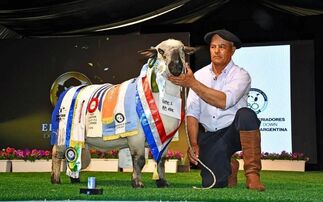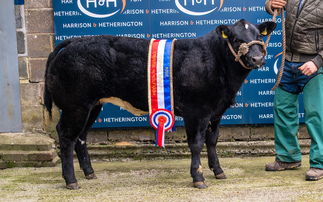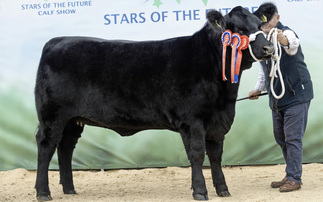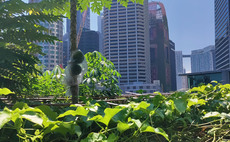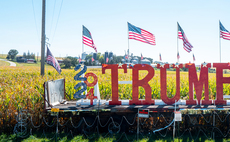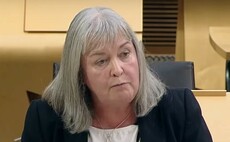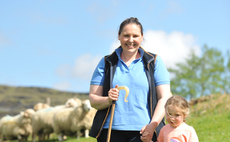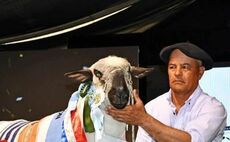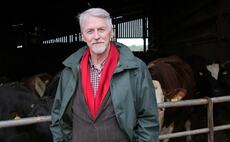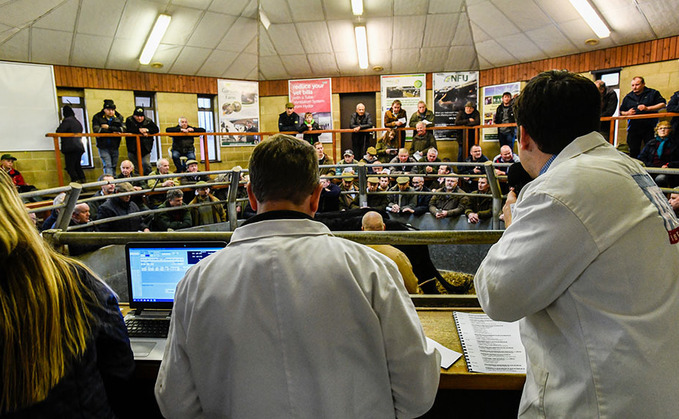
The first reaction to lockdown has been how grateful we are to have been categorised as part of the food chain and have remained open throughout this very trying period.
The only day we lost was March 25, which seems a lifetime ago, when the sheep price collapsed understandably as virtually every restaurant, pub, club, cafe and bar throughout Europe was closed.
Thankfully, the sheep trade recovered to an amazing level considering the constraints Europe faced and generally farmers have been highly relieved and pleased that the livestock markets have been allowed to remain open, and that the dreadful prices that were received in 2001 have not been replicated.
I have been amazed by how well the ‘drop and go' system has worked, with even our most ‘careful' customers content to abide by these guidelines rather than accept a dead-weight price or try to negotiate a private deal for ewes and lambs, store cattle, cows and calves.
On behalf of all market auctioneers I would like to pay tribute to Chris Dodds for continually fighting the corner of the Livestock Auctioneers' Association and livestock markets and, as ever, this crisis has shown how important it is to keep the food chain moving, not only in terms of primestock, but also store and breeding animals.
The prime lamb trade has remained particularly buoyant with only the heady trade of 2018 eclipsing the figures generated for hoggetts and lambs this year.
Store cattle have remained buoyant throughout and now that the prime beef price has risen it has given store purchasers even more confidence to ‘keep the wheel turning'.
Store cattle are trading at higher levels than 2019, despite the poor finished beef price throughout March and April.
Large finishers and farmers continued to source store cattle when it might have been easier to shut the door.
Ewes and lambs have sold exceptionally well with commercial yearlings up to £110 per life, with some exotics even more expensive. Even hard bred ewes and lambs are well sold at £40-£50 per life.
I must thank all of our vendors and purchasers for bearing with us during these difficult times as I fully understand how hard it must be to drop animals off and leave the premises, trusting in us and the buyers to do the right thing.
British produce
Tribute must also be paid to the professional buyers who have done their best to maintain a satisfactory trade throughout all sectors.
My final comment will be to our Government, which has had unbelievable difficulties to surmount.
Through the furlough and self-employed schemes wide scale disaster has been averted, even though I am sure there are many businesses and individuals who are suffering badly.
Not since World War II has there been quite such a demand for home-produced goods, as many things could not be imported from abroad. I hope Government will remember that we cannot and must not be reliant upon produce from outside this country. As we have seen in recent weeks, that is not always possible.
Manufacturing, especially food supply, must be maintained to the highest level to prevent the possibility of shortages, panic buying and the anarchy which could ensue if goods run out.
This country is capable of producing large quantities of meat, grain, vegetables and fruit, and it is imperative these supplies are encouraged, promoted and respected in case anything like this ever happens again.
In February, very few could have dreamed a pandemic of this extent could possibly take place. But it has and, heaven forbid, it could happen again and we must be better prepared in the future for such eventualities.
It is easy to be wise after the event, but we have had plenty of examples of MPs extolling the virtues of imported food and how easily available it is.
Lessons of self-sufficiency from this crisis must be learned, remembered and never forgotten.
hyde
Richard Hyde is co-chairman at Hereford Market Auctioneers. Call 07977 467 165, or email [email protected]







